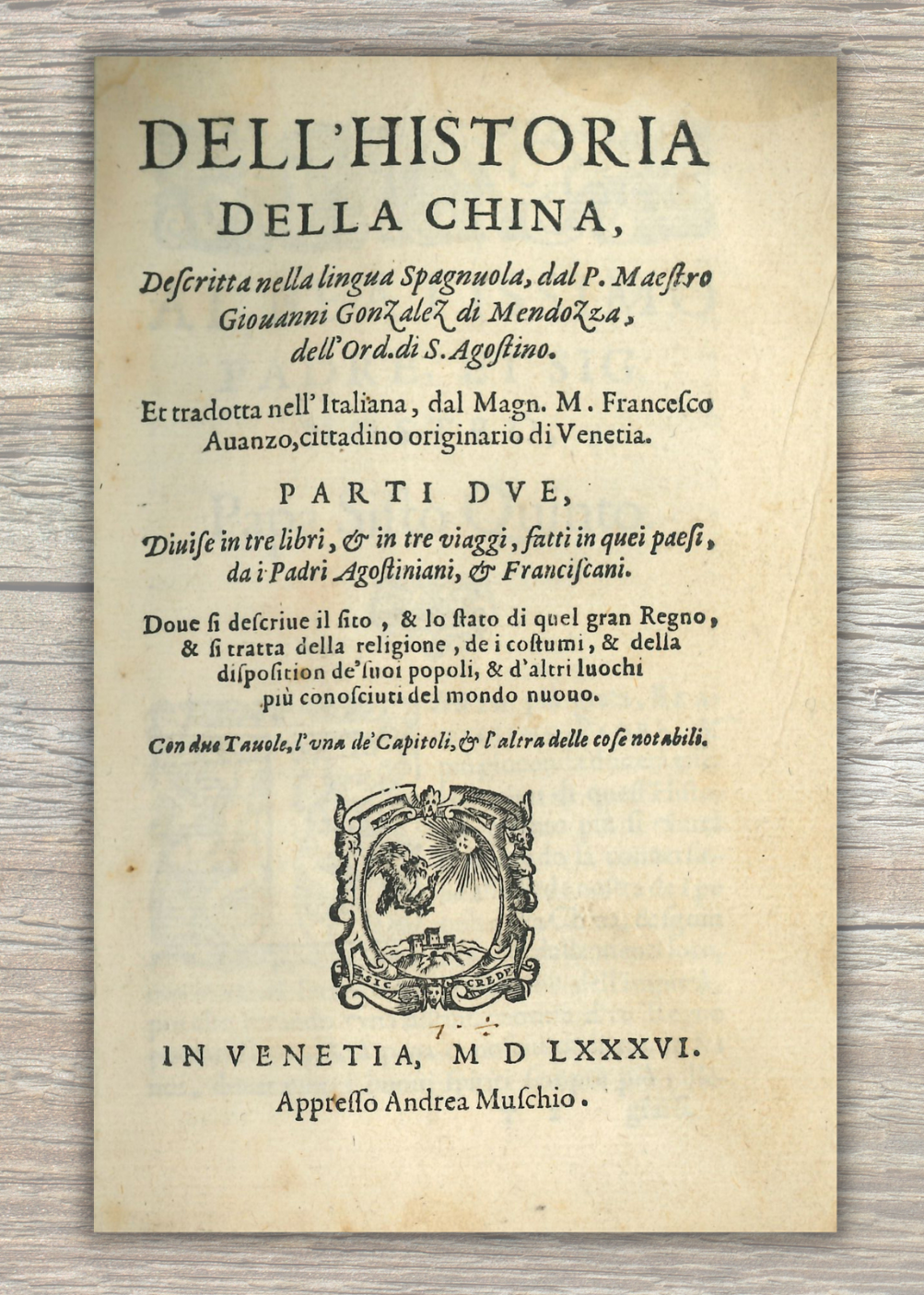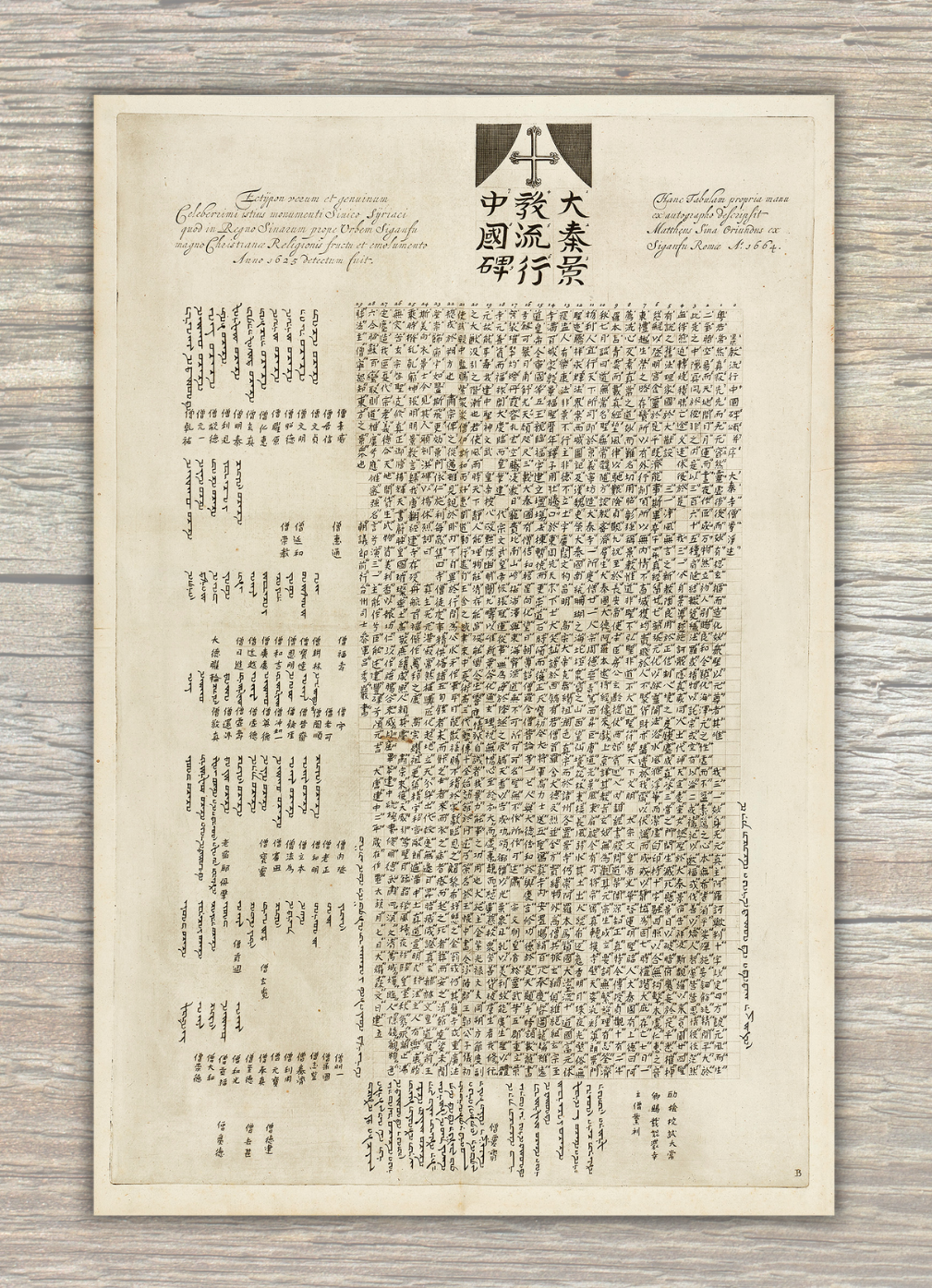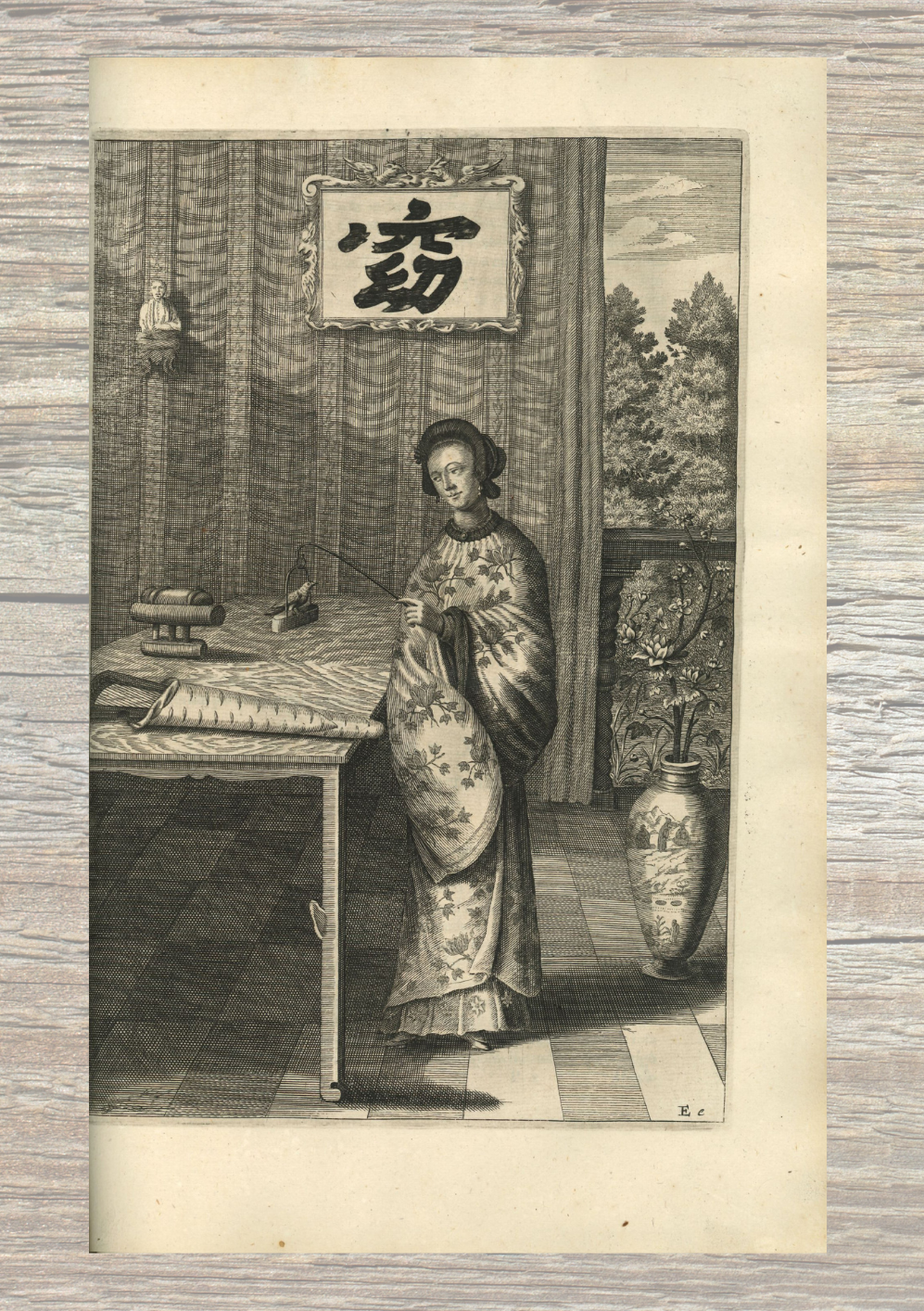|
||
|
||
|
| |||
| 28 OCT 2021 | ISSUE 10 | ||
|
| |||
| 3. Collection Spotlight – Early Western Books on China | ||||||
|
Special Collections at the Chinese University of Hong Kong Library has a small but important collection of early Western rare books on China. They are important records of the customs, society, politics and economy in China, as well as the early Sino-Western encounters and exchanges. Most of them were written by missionaries in the 16th and 17th centuries. The name of Mendoza, Ricci, Le Comte, and Du Halde are synonymous with any early Western studies of Chinese culture and were used for centuries as reference for those interested in the Chinese Empire and its history. The following works are significant sources that influenced how China was perceived by Westerners in the 16th and 17th century.
 Dell' historia della China, desoritta nella lingua spagnola Dell' historia della China, desoritta nella lingua spagnolaAuthor: Gonzalez de Mendoza, Juan Publisher: Venetia: Appresso Andrea Muschio Date: 1586 Language: Italian Juan Gonzalez de Mendoza (1545-1618) was a Spanish bishop, sinologist and writer. His Dell’ historia della China (The History of the Chinese Empire) was first written in Spanish in 1585 and was translated into Italian and published in the following year. Giving a detailed description of China, Mendoza’s Dell’ historia della China was the first significant book on China published in Europe.
This book, unillustrated, introduces China’s history, antiquities, architecture, populace, religious beliefs and ceremonies, agriculture, military organization, and government. It also contains descriptions of Japan and the Philippines as well as a chronicle of Spanish missions in the New World. Although Mendoza never visited China himself, he acquired many original reports from missionaries to China and the Philippines such as Martin de Rada (1533-1578), and had access to collections acquired by recent visitors to China. He therefore based his book on missionaries and travelers’ accounts. His clarity and lively descriptions made the book popular, which was once seen as the most comprehensive guide to the history of China in the 16th century. Athanasii Kircheri e Soc. Jesu China monumentis, qva sacris quaa profanis: nec non variis naturae & artist spectaculis, aliarumque rerum memorabilium argumentis illustrata, auspiciis Leopoldi Primi roman, imper. semper. augusti munificentissimi mecaenatis Author: Kircher, Athanasius Publisher: Amstelodami: apud Joannem Janssonium à Waesberge & Elizeum Weyerstraet Date: 1667 Language: Latin  Written by German Jesuit Athanasius Kircher (1602-1680), this publication in Latin is commonly known as China Monumentis or China Illustrata. Kircher was a polymath who published 40 major works, most notably in the fields of geology, medicine, natural science and Oriental Studies. Like Mendoza, Kircher had never visited China. He based his account on the first-hand knowledge of Jesuits who visited China including Matteo Ricci, Martino Martini, Johann Adam Schall von Bell, Michel Boym, among others. His Chinese Illustrata was an encyclopedia of all western knowledge about China containing information on religions, culture, costumes, geography, plants, languages, and many other topics. Written by German Jesuit Athanasius Kircher (1602-1680), this publication in Latin is commonly known as China Monumentis or China Illustrata. Kircher was a polymath who published 40 major works, most notably in the fields of geology, medicine, natural science and Oriental Studies. Like Mendoza, Kircher had never visited China. He based his account on the first-hand knowledge of Jesuits who visited China including Matteo Ricci, Martino Martini, Johann Adam Schall von Bell, Michel Boym, among others. His Chinese Illustrata was an encyclopedia of all western knowledge about China containing information on religions, culture, costumes, geography, plants, languages, and many other topics.The broad coverage, detailed descriptions and beautiful illustrations of this book opened a door for Europeans to understanding China. It was also the first publication to include the original Chinese and Syriac text of the Nestorian Stele (大秦景教流行中國碑) in a large pull-out sheet containing Chinese text in Romanization and Latin translation. The book was first published in Latin in 1667, and translated into Dutch in 1668, English in 1669, and French in 1670. Chinese Illustrata became one of the most popular and influential books on China in the 17th century.
 Confucius Sinarum philosophus, sive, Scientia Sinensis, Latine exposita Confucius Sinarum philosophus, sive, Scientia Sinensis, Latine expositaContributor: Couplet, Philippe; Herdtrich, Chretien; Intorcetta, Prospero; Rougemont, Francois Publisher: Parisiis: Apud Danielem Horthemels Date: 1687 Language: Latin Confucius Sinarum Philosophus (Confucius the Philosopher of China) was published by a team of Jesuits working under Philippe Couplet (1623-1693) in 1687, aimed at spreading Confucian thought and the Confucian classics in Europe, with a dedication to the King of France Louis XIV. In addition to three important Latin translations of Confucian works (Great Learning, Doctrine of the Mean, and Analects), the book includes the biography of Confucius and essays on Chinese history and culture. Through this publication, Confucianism was successfully introduced into Europe and treated as an Eastern counterpart of the Western Renaissance. This significant book became a fundamental source for Westerners trying to understand Chinese culture in the 17th century. |
||||||
| Back to Issue | ||||||
|
Past Issue
| |
|
|
|
|
|








